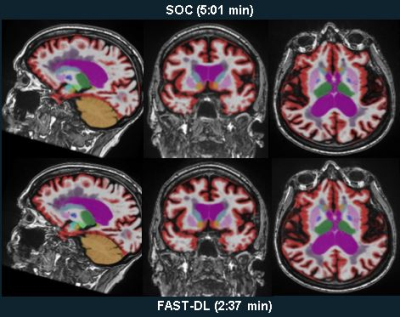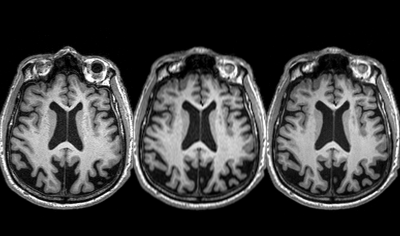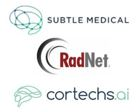Suzie Bash1, Long Wang2, Chris Airriess3, Sara Dupont2, Greg Zaharchuk4, Enhao Gong2, Tao Zhang2, Ajit Shankaranarayanan2, and Lawrence Tanenbaum5
1Neuroradiology, RadNet, Woodland Hills, CA, United States, 2Subtle Medical, Menlo Park, CA, United States, 3Cortechs.ai, San Diego, CA, United States, 4Stanford University, Stanford, CA, United States, 5RadNet, New York, NY, United States
1Neuroradiology, RadNet, Woodland Hills, CA, United States, 2Subtle Medical, Menlo Park, CA, United States, 3Cortechs.ai, San Diego, CA, United States, 4Stanford University, Stanford, CA, United States, 5RadNet, New York, NY, United States
Deep learning can enable 60% faster brain MR
examinations with matched clinical disease status predictability and statistically
superior perceived image quality while maintaining high quantitative accuracy when
compared with the longer standard of care exams.


